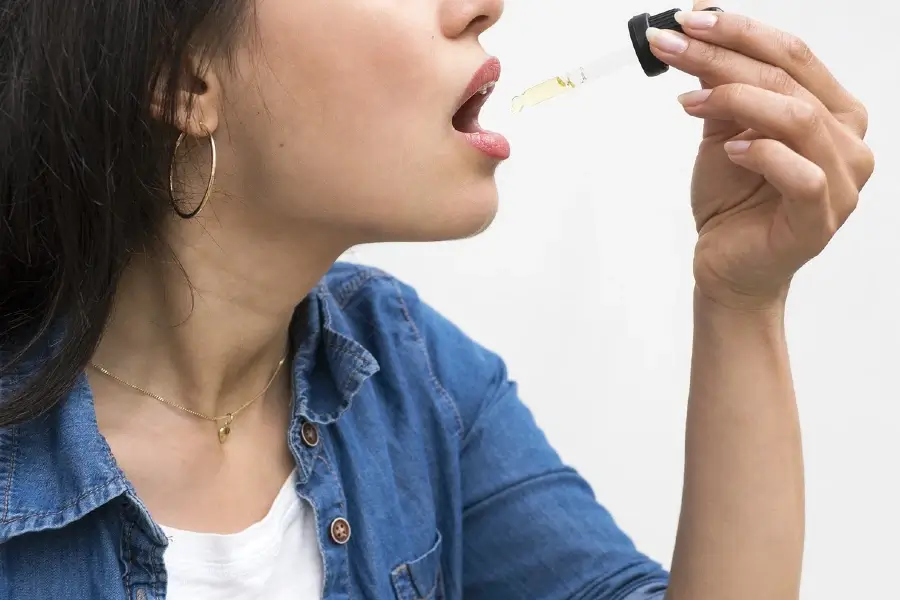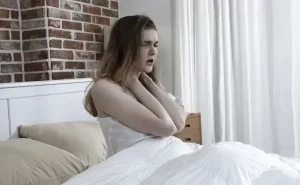Marijuana’s Therapeutic Potential as a Sleep Aid
People have traditionally used marijuana for lengthy periods to improve the quality of their sleep. However, it should be mentioned that there is still very little evidence in the scientific literature about its utility for this purpose.
While some research suggests that marijuana can help you fall asleep faster and remain asleep longer, others suggest that it may potentially interrupt your sleep.
THC, one of marijuana’s most recognized cannabinoids, provides soothing properties that make it easier to fall asleep. Marijuana has a long history of medicinal use, and it was recently discovered that one of its key components, THC, has calming properties that may benefit persons who have difficulty sleeping.
THC exerts its effects through cannabinoid receptors in the brain, which are involved in the control of several physiological functions, including sleep.
In research, tetrahydrocannabinol (THC) has been associated with both an earlier sleep onset and a longer sleep duration. It may also help you sleep better by lowering the number of times you wake up during the night.
The difficulty in falling asleep without marijuana might be increased by the drug’s tolerance and reliance, which develops over time.
Because chronic pain, anxiety, and PTSD can all have a significant impact on a person’s ability to fall and stay asleep, THC’s calming effects can be highly beneficial.
However, it is critical to note that while using marijuana as a sleep aid, extreme caution is required. THC consumption has been related to several unpleasant side effects, including lightheadedness, difficulty concentrating, and memory loss. Furthermore, regular marijuana usage can lead to tolerance, requiring greater doses to have the same calming effects.
Marijuana’s legal status differs by jurisdiction, so you may need a doctor’s advice or a prescription if you wish to use it for medical purposes. If you’re experiencing difficulties sleeping, the first step is to consult with your doctor to see if medical marijuana is a viable choice for you.
THC, on the other hand, can produce nervous and paranoid thoughts, making it harder to fall and keep asleep. The difficulty in falling asleep without marijuana might be increased by the drug’s tolerance and reliance, which develops over time.
The stage of sleep most typically associated with dreaming is rapid eye movement (REM).
CBD, one of the cannabinoids contained in marijuana, has been demonstrated to aid in sleep. More research is needed to validate these benefits and discover the best CBD dosage and mode of administration for enhancing sleep.
The study on the effects of marijuana on sleep paints a mixed picture. More research is needed to discover whether marijuana is safe and helpful as an insomnia medication.
Marijuana use for sleep aid may result in the following risks and complications:
- Long-term or heavy marijuana usage is connected with an increased risk of tolerance and dependency, which may make falling asleep without the substance more difficult.
- The stage of sleep most typically associated with dreaming is rapid eye movement (REM), and studies demonstrate that marijuana use affects REM sleep by shortening its length.
Physicians are best placed to advise patients on whether or not to consume marijuana and how to do so safely.
Marijuana usage has been associated with next-day grogginess, which is characterized by cognitive impairment and poor performance.
Marijuana has been associated with secondary unfavorable outcomes such as anxiety, paranoia, dry mouth, and ocular hyperemia, in addition to its primary effects. Anyone considering taking marijuana as a sleep aid should consult with a healthcare practitioner about the advantages and hazards. Physicians are best placed to advise patients on whether or not to consume marijuana and how to do so safely. It’s worth mentioning that smoking and transporting marijuana is illegal in numerous states. Before using marijuana, it is critical to research the regulations in your area.













